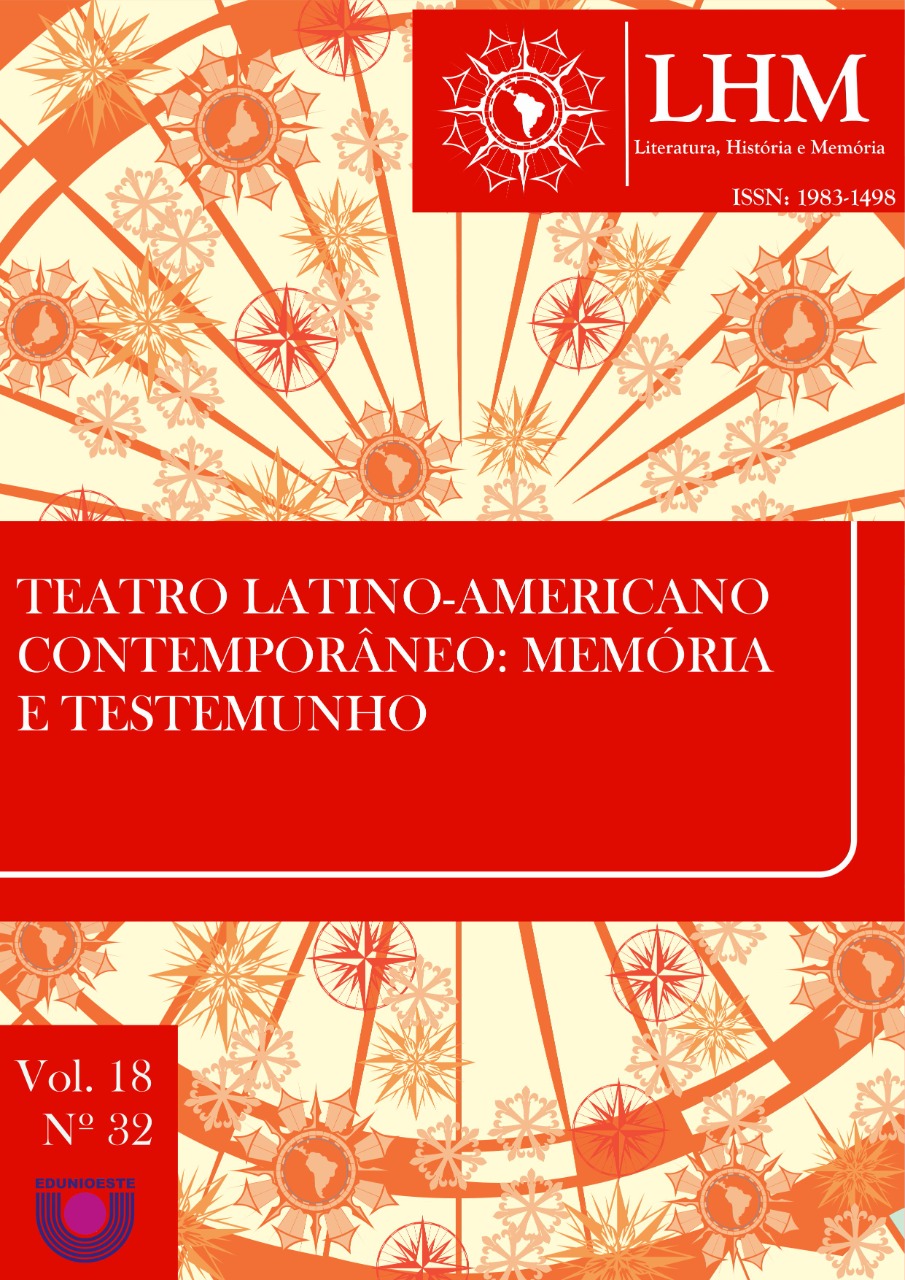Consciência histórica e representações literárias
experiências ficcionais às margens
DOI:
https://doi.org/10.48075/rlhm.v18i32.29156Resumo
Este artigo tem como propósito discutir a intersecção entre estudos literários e consciência histórica. Na primeira seção, discute alguns aspectos do conceito de consciência histórica, baseando-se num diálogo interdisciplinar com outras áreas de conhecimento e tentando verificar de que modo essas conceituações podem ser profícuas para os estudos literários. Na segunda parte, ilustra a discussão teórica, analisando a representação da consciência histórica no romance Jacob beschließt zu lieben de Catalin Dorian Florescu. Nas conclusões, diferencia três esferas de análise: a representação no nível da realidade ficcional, na esfera da mediação de informações e no posicionamento da voz autoral em diálogo com o espaço de sua produção estética. Por fim, chama a atenção para a necessidade de representações periféricas que permitam a ampliação do escopo de textos que embasam a formação de consciência histórica.
Downloads
Publicado
Como Citar
Edição
Seção
Licença

Este trabalho está licenciado sob uma licença Creative Commons Attribution-NonCommercial-ShareAlike 4.0 International License.
Aviso de Direito Autoral Creative Commons
Política para Periódicos de Acesso Livre
Autores que publicam nesta revista concordam com os seguintes termos:
1. Autores mantém os direitos autorais e concedem à revista o direito de primeira publicação, com o trabalho simultaneamente licenciado sob a Licença Creative Commons Attribution que permite o compartilhamento do trabalho com reconhecimento da autoria e publicação inicial nesta revista.2. Autores têm autorização para assumir contratos adicionais separadamente, para distribuição não-exclusiva da versão do trabalho publicada nesta revista (ex.: publicar em repositório institucional ou como capítulo de livro), com reconhecimento de autoria e publicação inicial nesta revista.
3. Autores têm permissão e são estimulados a publicar e distribuir seu trabalho online (ex.: em repositórios institucionais ou na sua página pessoal) a qualquer ponto antes ou durante o processo editorial, já que isso pode gerar alterações produtivas, bem como aumentar o impacto e a citação do trabalho publicado (Veja O Efeito do Acesso Livre).
Licença Creative Commons
Esta obra está licenciada com uma Licença Creative Commons Atribuição-NãoComercial-CompartilhaIgual 4.0 Internacional, o que permite compartilhar, copiar, distribuir, exibir, reproduzir, a totalidade ou partes desde que não tenha objetivo comercial e sejam citados os autores e a fonte.


